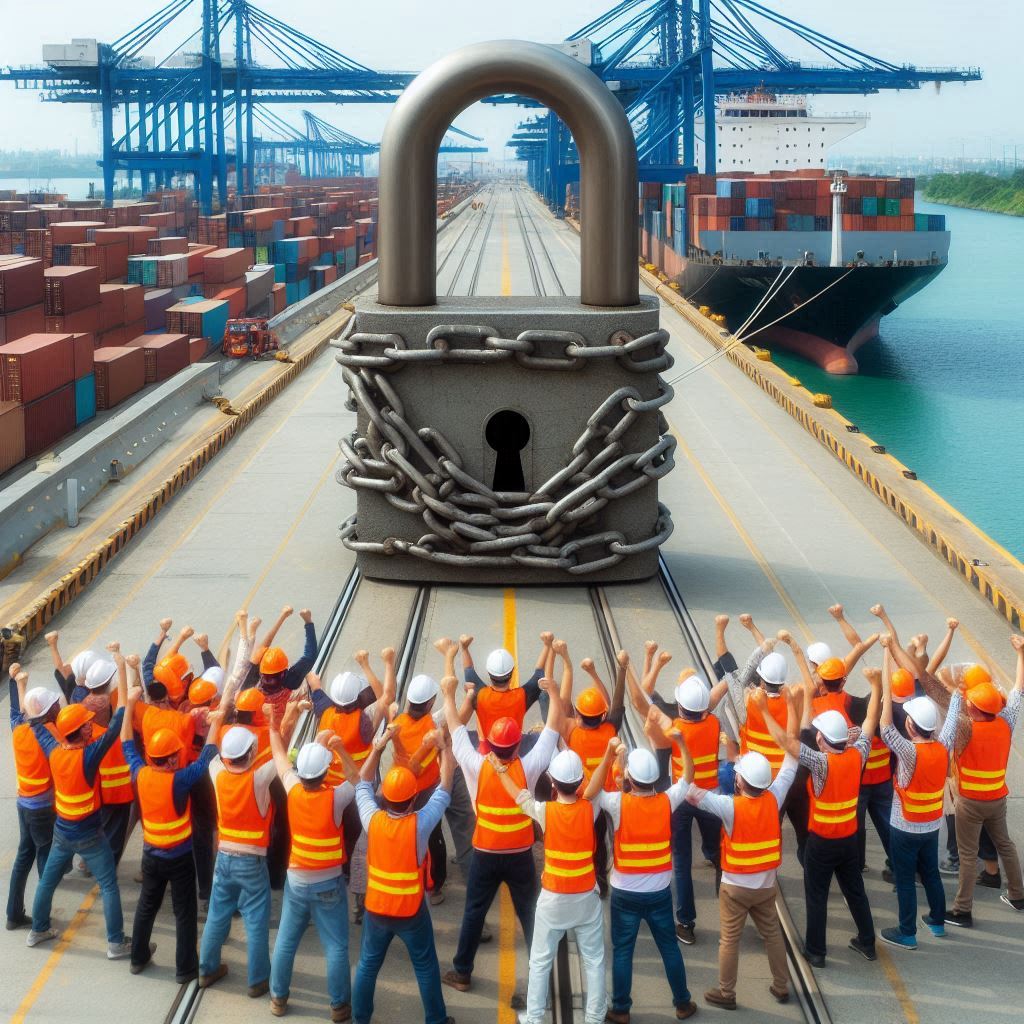Canadian Government Orders BC & Montreal Dockworkers to Work & Forces Arbitration
Canada’s West Coast ports are going to reopen. Not because negotiations between dockworkers and employers reached resolution or made progress. In fact, part of why they’re reopening is because absolutely zero progress at the negotiation table has happened. Canada’s government simply couldn’t allow the compounding damage of the closed ports to continue.
Craig Lord reported in a Global News article:
The federal labour minister ordered an end to work stoppages at Canada’s largest ports in British Columbia and Quebec on Tuesday, imposing “final and binding arbitration” on the parties.
B.C. ports shut down on Monday, November 4th after ILWU Local 514 went on strike and employers responded with a lockdown. As the week drew to a close, no progress was made to reopen. Worse, the similar situation at the Port of Montreal deteriorated even further over the weekend.

A strike from the Canadian Union of Public Employees (CUPE) Local 375 closed down two important Port of Montreal terminals on October 31st. Those have remained closed, but there was a faint flicker of hope that the union might accept a “final” offer from the employers. Unfortunately, union members voted to reject the offer this weekend, and employers declared a lockout on the striking dockworkers.
Alexander Whiteman reported in the Loadstar yesterday:
Canada’s Maritime Employers Association (MEA) has imposed a lockout of striking employees at the port of Montreal, after its “final” offer to the dockworkers was rejected.
Longshoremen’s Union CUPE Local 375 yesterday rejected the deal, maintaining its strike at the Termont terminals, in search of higher pay, while some workers at other facilities are also refusing to work overtime to help clear cargo build-up.
Consumers, shippers, and business owners were starting to wonder when the Canadian government would step in to get the ports and their terminals, on both coasts, operating again during this especially important time of year for supply chains. It seemed the government wanted to give the parties a chance to negotiate and work something out. However, there appeared to be no urgency from the unions or employers, so the government was compelled to act. The government tried directing the parties back to the negotiating table, according to Canada’s Minister of Labour Steve MacKinnon. When progress wasn’t made there, the government took it to the seemingly inevitable level.
Lord reports:
[MacKinnon] said he has directed the Canada Industrial Relations Board to “order that all operations and duties at the ports resume and to assist the parties in settling their collective agreements by imposing final and binding arbitration.”
The order doesn’t mean the ports reopen on the spot. It takes a moment to get things operating. Lord’s Global News article continues with:
MacKinnon said he expected work to resume in “a matter of days.”
This is good news, not only for shippers, consumers, and supply chains in Canada but for those in the U.S. as well. Canada’s port and supply chain disruptions were just beginning to impact U.S. supply chains. If the shutdowns went on much longer, serious ship diversions to U.S. ports would have been taking place. And the ILWU in the U.S. might very well have refused to work those ships to show solidarity with ILWU Canada.
Even still, there will be impact on U.S. supply chains in the upcoming weeks as Canada is America’s number one trade partner.
Canadian ports and rails will have a lot of catch-up to do in the upcoming months. For every day the ports are shut down, estimates tend to be in weeks when it comes to recovery.





